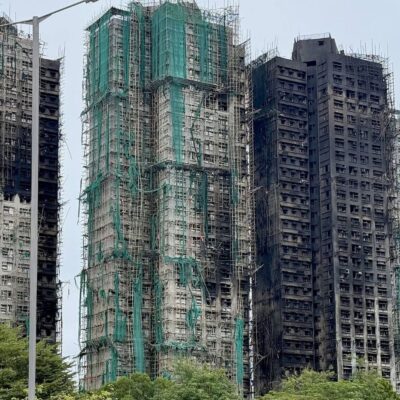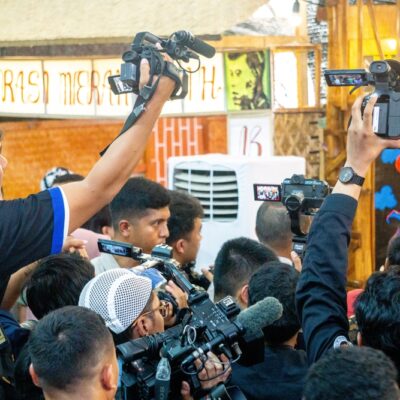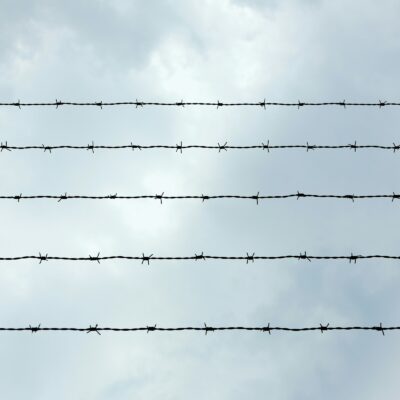For three decades, Mongolia has maintained its status as a democracy, but there is growing evidence of a backsliding process, especially during the last two parliamentary terms.
One of the potential core causes of democratic backsliding in Mongolia is the long-standing limited possibility of parliamentary monitoring. Although, citizens of a democracy should be empowered with parliamentary transparency and accountability, in reality, this is insufficient in the Mongolian legislature, despite consistent effort by parliamentary monitoring organisations and civil society organisations in general.
Background
Mongolia is a nation with a relatively small population (less than 3.5 million) in Central Asia with a long history, distinct culture, and unique language. Mongolia was the first empire of the nomads, the Xiongnu Empire, which was founded in 209 BC. In the 13th century, its predecessors formed the Mongol Empire, the largest contiguous land empire in history, stretching over 23.5 million square kilometers. Mongolian imperial history lasted until it came under Qing Dynasty control by the end of the 17th century. Mongolia declared its independence from the Qing at the beginning of the 20th century, and it eventually established close political and economic ties with the Soviet Union, which boosted its modernisation, albeit at a very high cost of repression and oppression under the communist autocracy. The Stalinist purges in Mongolia imprisoned over 100,000 and killed over 30,000 Mongolians in the course of two years. Aristocrats, Buddhist monks and ethnic minority Buryats were the main targets.
Mongolia made headlines around the world when it began to transition to democracy in 1990, given its very ‘uncomfortable’ geographical circumstances, situated between Russia to the north and China in the south—an unlikely neighborhood for the birth of a democratic system. Mongolia’s democratisation is widely considered to be phenomenal as the only democracy among the former Soviet Central Asian countries and among Buddhist-majority countries.
However, it could be argued that existence of democratic and quasi-constitutional principles have existed since the formation of the Mongol Empire and the Yassa legal system established by Ghenghis Khan, the founder and first leader of the Mongol Empire. Yassa contained a provision stating that ‘Mongols shall not give to their kings and nobles many laudatory names, or titles, like the other nations. And to him that sits upon the throne of the kingdom they shall add only one name—The Khan’, which bestowed supreme power on the Khan and abolished all other aristocratic titles. However, the power of the Khan was not absolute as it was subject to the Ikh Kurultai (the Great Assembly), which was consisted of clan chieftains. The Kurultai had the power to elect and appoint the Khan and the Yassa prohibited anyone proclaiming themselves as a Khan, if not duly elected by the Kurultai. Genghis Khan was proclaimed leader by the Kurultai in 1206. It’s fascinating that this political system existed before the revolutionary Magna Carta, the first document to put into writing that the English king and the government was not above the law. From an historical perspective, some key elements of modern parliamentary democracy have long existed in Mongolian society and it could be a reason that it was keen to adopt a semi-parliamentary form of democracy compared to other central Asian peers that continued the autocratic legacy.
The executive branch is led by the Prime Minister who is elected from the Parliament and serves as the head of government. The popularly elected President acts as the head of state. The Parliament, the main unicameral legislative institution, consists of 76 members who are popularly elected for a four-year term. The choice of the constitution-makers to adopt a semi-parliamentary republic can be attributed to two main factors: firstly, the importance for Mongols of having a popularly-elected President who can guide and lead as a unifying figure (reflecting a long-established tradition of governance of the Khans); and secondly, the adoption of a parliamentary system aiming to establish stability and accountability in governance and to mitigate the potential threat of foreign influence as well as distributing responsibility for these matters among members of parliament, rather than concentrating them in the role of President.
In the early 1990s a semi-parliamentary system was initially anticipated to be the most suitable form of government. However it has been prone to constant political gridlocks, often caused by conflicts between the President and the Parliament. Over time, Mongolia has gradually reduced the powers of the President and transfered these powers to the executive. This has loosened the checks and balances on the Prime Minister.
It is inspiring that after three decades, Mongolia remains committed to democracy, at least in the sense that elections are sufficiently free and fair to be considered democratic. However, the quality of democracy has significantly reduced over the last two parliamentary terms, regressing back to its transitional period of the early 1990s and putting it on the verge of slipping into autocracy.
Recent regression

Source: Varieties of Democracy*
In the 2016 and 2020 parliamentary elections, Mongolia shifted from a two-party to one-dominant party system. The Mongolian People’s Party won landslide victories in both elections by filling more than 80 percent of parliamentary seats despite obtaining only around 45 percent of total votes which has resulted in one of the most disproportionate elections in the world. In addition, the position of President has been filled by the former leader of the MPP, Khurelsukh Ukhnaa, which has solidified the party’s authority across all branches of the government. As the MPP’s power has grown, the opposition Democratic Party has struggled with internal factionalisation, which led to a leadership dispute that continued for several years. Former Democratic Party leader Erdene Sodnomzundui, despite losing the previous parliamentary election and announcing his resignation while handing over the leadership to Tuvaan Tsevegdorj, has unexpectedly reclaimed his leadership in defiance of the party’s statutes. This internal conflict has weakened the Democratic Party and, most importantly, its role as the opposition within Parliament.
The Constitution has been amended three times since the MPP has gained the power to amend it without needing political support from other parties. Perhaps the most significant occurred in 2019, which introduced provisions (among others) that increased executive power by enabling the Prime Minister to appoint or dismiss cabinet members, whereas previously, each candidate needed parliamentary approval. These frequent amendments to the Constitution raise concerns that governing politicians might change it for immediate short-term political benefit rather than the country’s long-term well-being. Such behavior would certainly undermine the core principles of constitutionalism and reduce the legitimacy of the Constitution.
However, developments after the recent parliamentary election seem positive. On June 28th 2024, Mongolia held its 9th parliamentary election since the introduction of a proportional representation system. Many smaller political parties, such as HUN, National Coalition and Civil Will-Green Party were able to obtain representation in the parliament. The opposition Democratic Party won one-third of seats and the ruling MPP has barely preserved its majority. The Parliament looks much more balanced compared to the previous two terms where the parliament was dominated by a single-party. Peculiarly, right after the 2024 parliamentary election, the MPP invited the Democratic Party and HUN Party to form an oversized coalition despite winning the majority. The invitees swiftly agreed and joined the coalition cabinet. Although the effective number of parliamentary parties had increased substantially, the oversized coalition government now accounts for almost 94 percent of the total seats in the legislature, raising alarms about the checks and balances within Parliament and urging civil society to continue upholding and strengthening its monitoring capabilities.
Parliamentary monitoring issues
In every modern parliamentary democracy, it is essential to monitor the activities of the legislature to ensure accountability and transparency in governance. However, there are challenges, which are all interrelated, that impede oversight in the Mongolian context:
- There is inadequate citizen understanding of and participation in parliament and government;
- There is a lack of transparency in relation to legislative proceedings;
- The organisations responsible for monitoring parliamentary activities often face shortages in both human and economic resources which ultimately affect their capacity to function independently and effectively.
Mongolian parliament has faced some scrutiny since the transition to democracy. In fact, during an assessment of the legislature’s work in 2021 many citizens regarded the parliament’s level of transparency to be satisfactory. This study involved 2,000 people representing the 21 provinces of Mongolia and the capital city, Ulaanbaatar. When asked to share their views, they explained that the regular appearance of members of parliament on television and the consistent news coverage of parliamentary sessions lead people to believe that parliamentary activities are transparent. This indicates that the public mistakes media visibility with parliamentary transparency. It is essential that the public assesses Parliament’s activities in-depth, examining whether it holds procedural integrity and the substantive impact of its decisions.
An enduring custom in Mongolia is the reverence for authority and the preference for strong leadership. This sentiment greatly influences how the Mongolian people engage with those in positions of power such as members of parliament. The public largely doesn’t see them as the representatives of the people, but more as figures of authority. Although the pre-democracy socialist regime laid the groundwork for the emergence of a democratic system—by advancing the process of building a modern state and introducing the first Constitution—the ruling elites predominantly limited civil liberties and operated with little transparency, controlling information and governance without public oversight. Nevertheless, public admiration for the government allowed the socialist regime to tighten its grip on power.
Feelings of admiration for political leaders without a recognition of the need for effective monitoring and oversight had long existed in the Mongolian context. Therefore, expecting transparency and accountability from parliament isn’t a perception deeply ingrained in the minds of citizens. While work has been done over the past 30 years to safeguard the ability to monitor government and parliament through laws like the ‘Law on Transparency of Public Information’, there hasn’t been significant progress in equipping citizens to effectively utilise these laws to demand transparency.
Efforts to increase parliamentary transparency
It is critical to note that efforts to enhance parliamentary transparency in Mongolia have been predominantly spearheaded by the parliamentary institutions themselves, often with funding support from international organisations. For example, in 2016, the forum.parliament.mn website in cooperation with the Secretariat of the Parliament and a local non-governmental organization (with funding from the United Nations Democracy Fund) were commissioned to use digital technology to improve parliamentary transparency. This was the first time in Mongolia that draft laws, research, legislative intents and views were made available in this format.
After the “forum.parliament.mn” website was discontinued in 2022, another initiative was launched called ‘Strengthening Representative Bodies in Mongolia’, funded by the Swiss Development Agency. Shortly after this project concluded, the lawforum.parliament.mn platform was transitioned to D-Parliament.mn with support from the Asia Foundation. So, although Parliament initiated this work to improve transparency, it took several rounds of external funding from various organisations, which of course is greatly appreciated, and multiple upgrades of the project to realise a single platform. Due to the frequent changes, citizens became confused about where to check the activities of Parliament. This platform is now run by the legislature itself rather than an external independent organisation.
Despite the long-standing efforts of citizens, journalists and researchers, there was no institution dedicated to conducting parliamentary monitoring processes in a comprehensive way until 2020. With an ambitious goal to fill this gap, an NGO called the National Center for Comprehensive Development launched the United Info Hub (uih.mn) project, which is still the only project that aims to monitor the legislature on a regular basis. The Uih.mn platform publicly provides information relating to MPs’ attendance at parliamentary sessions, their votes on the adoption of laws, biographies, declarations of assets and income, and conflicts of interest.
The Center requested information on the results of the vote on the adoption of the laws which were passed since 2020, but despite trying to obtain the information via four requests and two official complaints lodged over two years, the information was not released. Subsequently, the Center filed a complaint with the Administrative Court, but the Court did not accept it. The Center also filed an appeal with the appellate court, which was also not accepted. Finally, after exhausting all legal options without success, in March 2023, we organised an advocacy campaign called ‘Right to Know.
The main activity of the campaign was to develop a template for information requests addressed to the Parliament’s Office and the Speaker of Parliament, and to have numerous citizens submit these requests simultaneously. As part of the campaign, a press conference was held to inform the public about how the Parliament is violating citizens’ right to know. Over 200 requests were submitted by citizens, and 16 leading civil society organisations in Mongolia also joined the campaign by submitting their requests. As a result of these efforts, the Parliament of Mongolia made the voting records of its members during the legislative process publicly accessible for the first time.
The mechanisms for improving parliamentary transparency in Mongolia are just beginning to develop, and it is clear that there are many obstacles ahead. Civil society organisations have taken up this responsibility, with the National Center for Comprehensive Development being the only organisation currently implementing parliamentary monitoring.
Ultimately, our efforts showed that civil society initiatives are critical to holding elected representatives accountable. With the increase of members in the Mongolian parliament following the election in June 2024 it is clear that making their actions more transparent will require more work.
Enkhbadral Myagmar is the founder and executive director of the National Center for Comprehensive Development CSO. He is a Ph.D. candidate in the sociology program at the National University of Mongolia. His research focuses on parliamentary transparency and oversight mechanisms. He is also the initiator of the United Info Hub (www.uih.mn) project, an online platform for external parliamentary monitoring in Mongolia.
Geser Ganbaatar is a Ph.D. candidate and COMP-LAW project associate at the University of Milan. His research focuses on analyzing the process of democratic backsliding from a comparative perspective. He has also been a visiting researcher at the Institute of Law and Economics, University of Hamburg and acts as a consultant at the National Center for Comprehensive Development CSO.
*Coppedge, Michael, John Gerring, Carl Henrik Knutsen, Staffan I. Lindberg, Jan Teorell, David Altman, Fabio Angiolillo, Michael Bernhard, Cecilia Borella, Agnes Cornell, M. Steven Fish, Linnea Fox, Lisa Gastaldi, Haakon Gjerlow, Adam Glynn, Ana Good God, Sandra Grahn, Allen Hicken, Katrin Kinzelbach, Joshua Krusell, Kyle L. Marquardt, Kelly McMann, Valeriya Mechkova, Juraj Medzihorsky, Natalia Natsika, Anja Neundorf, Pamela Paxton, Daniel Pemstein, Josefine Pernes, Oskar Rydén, Johannes von Römer, Brigitte Seim, Rachel Sigman, Svend-Erik Skaaning, Jeffrey Staton, Aksel Sundström, Eitan Tzelgov, Yi-ting Wang, Tore Wig, Steven Wilson and Daniel Ziblatt. 2024. ”V-Dem [Country-Year/Country-Date] Dataset v14” Varieties of Democracy (V-Dem) Project. https://doi.org/10.23696/mcwt-fr58.
Image: Төрийн минь сүлд өршөө (Old woman praying for the state), State House of Mongolia, in Sukhbaatar Square, on September 4, 2023. Image used with permission from Zandanbat Delgermaa.




